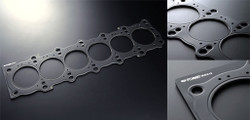
 Quick view
Quick view
Tomei
TOMEI - Metal Engine Ornament Plate - 1JZ-GTE VVT-i Non-VVTi is currently not available.
 Quick view
Quick view
Tomei
The new Tomei ARMS MX-Series Turbocharger improves upon Tomei's original M-Series turbocharger design with the introduction of a new lightweight billet wheel, multi rate billet actuator, and the very...
 Quick view
Quick view
Tomei
Tomei HEAD GASKET-For 1JZ-GTE and 2JZ-GTE Maximize your JZ potential! ***********Please check the application chart below and specify either part number, or engine and head gasket...















